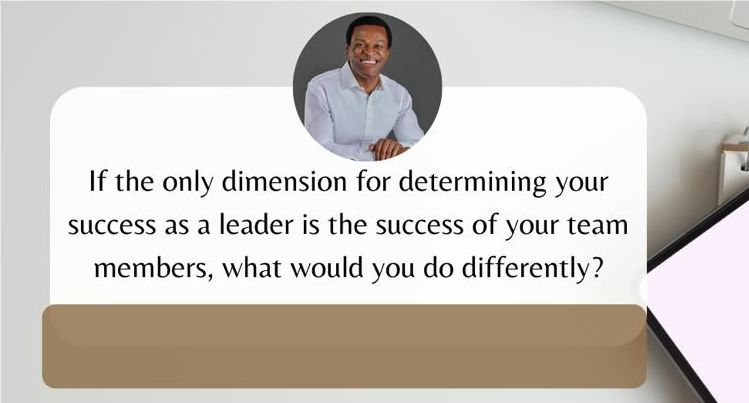How are you using your experience to guide those under you? Are you showing genuine interest in their career? Showing genuine interest in others’ careers is hard work, that understandably, some of us are not willing to do because we all have our problems, but if you ever do, you will be glad you did. In my experience as a leader, there is no greater joy than seeing the employees under my care succeed.
So, what is your view on leading and managing others’ careers? Do you hold yourself accountable for their performance? If their performance was the only determinant of your success, would you approach it differently? Are you doing your best to ensure they are the best version of themselves and perform at their best? Are you helping them to find meaning in what they do?
In the course of my employment, I was opportune to manage the careers of several employees, and I believe that despite the occasional challenges I encountered, there is no such thing as a bad employee. Instead, the challenges offered me opportunities to improve my managerial/leadership skills.
In addition to supporting people to succeed in their current roles, leading and managing them to transition out in instances where job/organizational fit became an issue was an effective leadership tool I also employed.
I believe that every employee has work-related needs, so to every extent possible, I have to help meet these needs and be a catalyst/enabler to their career success. Also, showing genuine care and interest in their overall growth/success helped build trust and improved engagement.
I had this situation with a new hire under my direct supervision where I thought I did all I knew in leading and managing people for results but was meeting a brick wall. Based on my assessment, this individual had the potential, and there was no question about the job and organizational fit. However, the individual wasn’t just engaged, and from my evaluation, termination was imminent if this continued.
This became a major headache for me since I was experiencing such for the first time. Then, one day, as I was reflecting, it dawned on me that I was this person’s first manager and that it would be my failure if this individual failed. With this realization, my thinking shifted, and I began to see this as my problem, which I must fix. And yes, I started to see possibilities for solutions.
I then realized that this individual had certain immediate expectations coming from the university into the job, and it seemed they were not being met. With this insight, my approach changed. Once I was able to help the employee find meaning by linking expectations and goals with the offerings of the job, the story changed. Today this individual’s career is flourishing.
How often do you look inward to assess yourself as a leader? What would you do differently if you assume 100% responsibility for your team members’ success?























